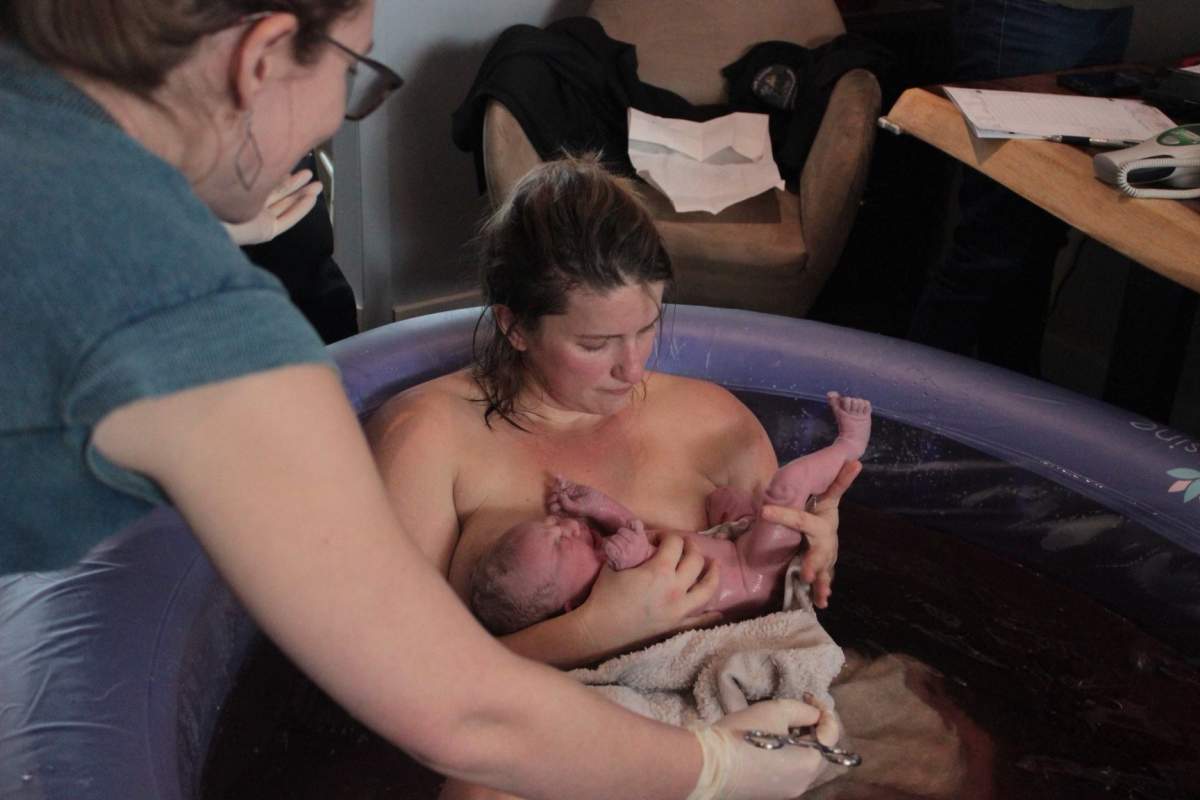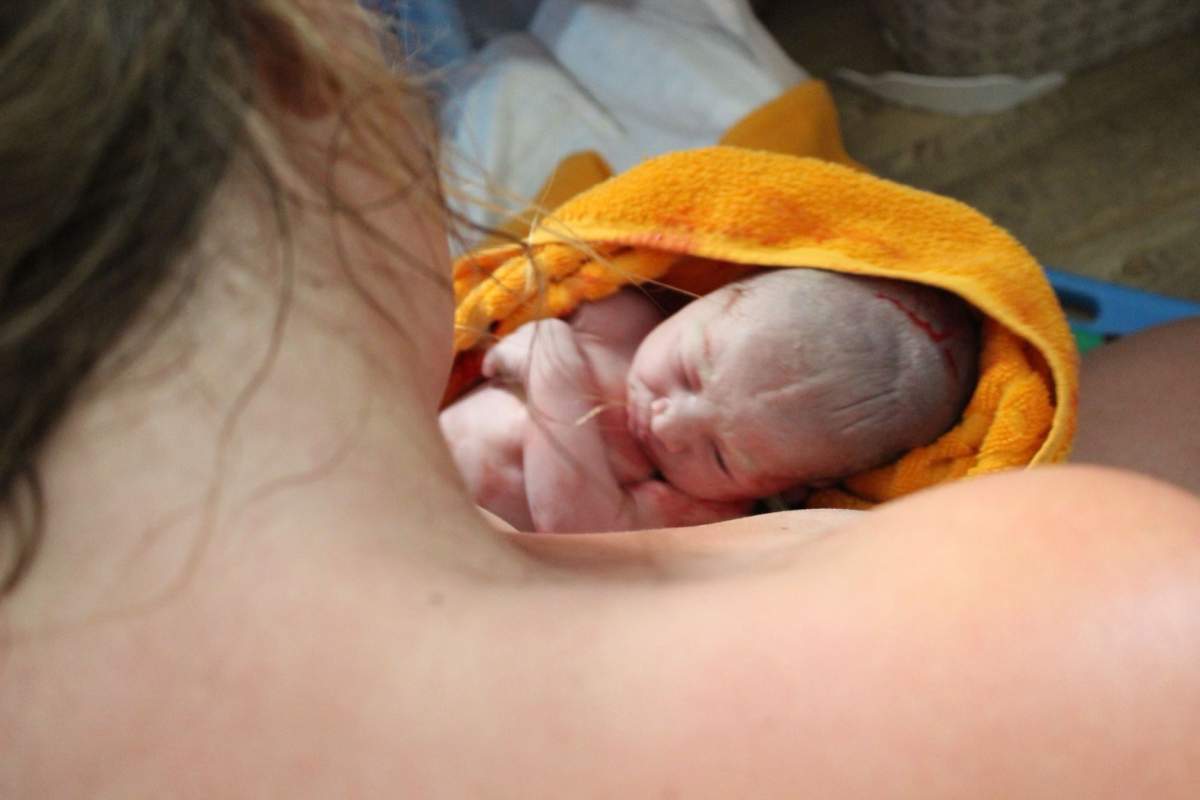Reaction is pouring in as the South Okanagan’s only midwifery clinic announced its upcoming closure after a decade of offering maternity care to expectant mothers.

“It is really sad, to be honest,” said Summerland mother Erin Carlson, who gave birth twice at home in 2017 and 2020 with the support of Willow Community Midwives.
“I don’t think I was shocked, because I know the pandemic has taken a lot of shock value away from a lot of different things.
“It has become so popular that everyone I know wants to have a midwife, and there are not enough midwives in the first place, so try to continue to provide that service, I understand it can be challenging.”
The Penticton-based clinic said it is unable to maintain a midwifery service in the South Okanagan due to a shortage of midwives.
Willow Community Midwives will close on March 31.
Aly Jones is the practice’s co-founder. She is also the vice-president of the Midwives Association of B.C. (MABC).
“It’s been a very difficult decision,” she said.
“I think the part that is hard is you only have so much to give, and with unexpected medical leaves and the extra stresses of COVID, the burnout is so high. And then to be left in a community where there isn’t capacity to keep the clinic running, it wouldn’t be safe to be practicing.”

The staff is also devastated by the news.
“I’m quite saddened and heartbroken by it. It’s a huge loss for the community that we are having to close our doors,” said aid Willow midwife Tiffany Holdsworth-Taylor.
“We have been here for 10 years and catch over 30 per cent of the babies in this community.”
The closure is a symptom of a larger problem.
Midwife shortage

Get daily National news
According to MABC, 77 per cent of B.C. midwives surveyed reported moderate to high work-related burnout during the COVID-19 pandemic, an increase from 45 per cent in 2017.
The proportion of midwives who made plans to leave the profession more than doubled between the same time frame, with one in five midwives taking active steps to leave the profession.
“The why is likely due to burnout and lack of equity,” Jones said.

“Registered midwives and family physicians provide the same primary maternity care and yet we are excluded from provincial benefits, so things like health and disability, pension, paternity leave, COVID supports.”
The midwifery industry was regulated in B.C. in 1998 and services are funded under B.C.’s health-care system.
Midwives are experts in low-risk and low-intervention births.
They generally offer longer appointments, at-home birth options and in-home post-partum services to help new parents adjust to life with a baby.
Holdsworth-Taylor, who is expecting a child herself in June, lamented the lack of government support for her profession.
“As a pregnant midwife, I don’t have access to maternity leave,” she said.
“We don’t have retirement plans, we don’t have sick leave, we don’t have any support for office expenses. We are the only primary care provider that doesn’t have office expense support, so everything that it takes to run a midwifery business comes out of our own pockets.”
The association said midwives work long hours attending births and are not able to take time off to recuperate from burnout.
The primary-care providers want systemic change and improvements to working conditions.

Jones said that COVID-19 has exposed a critical lack of government support that not only negatively impacts midwives, but also the families they care for.
“We are already a year into the pandemic and midwives don’t have any COVID relief program available to them. So, for example, if a midwife gets sick with COVID or needs to quarantine for any reason, they have no access to support,” Jones said.
Clinic waitlists
As the profession faces its challenges, demand for midwifery care is growing in B.C.
Midwives assist with 23 per cent of all births in the province, which is the highest rate in Canada.
There are approximately 400 registered midwives practicing in B.C., but not enough to keep up with demand.
Many midwifery practices, especially in smaller communities, have waitlists.
“There is a large demand for midwifery, but the midwives themselves are finding that we are at a crisis stage, in terms of our burnout and ability to keep going,” Jones said.
Pregnant Penticton women may even have a difficult time locating an available midwife in Kelowna, according to Holdsworth-Taylor.

“There’s a few clinics in Kelowna; they are typically at capacity, so they’ve been limited in their ability to take on our clients,” she said.
Global Okanagan has reached out to the Ministry of Health for comment.
Midwife education
The University of British Columbia (UBC) is the only post-secondary institution in B.C. to offer a midwifery program.
Jones said the school increased the number of seats from 10 to 20, but it is still not enough to keep up with demand.
“Even if we add to the programs, which I think is very essential because we need more midwives, we also need to support those midwives and have them stay in their career,” she said.
Other options
There are fewer general practitioners willing to provide maternity care, therefore South Okanagan women will be left with few options other than the South Okanagan Maternity Centre for their pregnancy, birth and postpartum care.
The centre, based at Penticton Regional Hospital, is a team-based clinic providing interdisciplinary care for women with low-risk pregnancies.
“The clinic provides wrap-around care with seamless referrals to other maternity specialists: obstetricians, pediatricians, perinatal social worker, and public health,” it said on its website.
Interior Health did not respond to specific questions if the clinic will be able to handle an increased caseload in the wake of Willow’s closure, or if it will hire more staff.
“We have only recently learned about this closure,” read an emailed statement from an unidentified spokesperson.
“Interior Health’s priority now is to work with South Okanagan physicians, midwives, and the Division of Family Practice to ensure all moms have access to maternity services, from pre-natal through delivery to post-partum care.”










Comments